| Listing 1 - 10 of 21 | << page >> |
Sort by
|
Book
ISBN: 0307829626 Year: 1996 Publisher: New York : Vintage Books,
Abstract | Keywords | Export | Availability | Bookmark
 Loading...
Loading...Choose an application
- Reference Manager
- EndNote
- RefWorks (Direct export to RefWorks)
In these six essays--delivered on the BBC as the prestigious Reith Lectures--Edward Said addresses the ways in which the intellectual can best serve society in the light of a heavily compromised media and of special interest groups who are protected at the cost of larger community concerns. Said suggests a recasting of the intellectual's vision to resist the lures of power, money, and specialization. In these pieces, Said eloquently illustrates his arguments by drawing on such writers as Antonio Gramsci, Jean-Paul Sartre, Regis Debray, Julien Benda, and Theodore Adorno, and by discussing current events and celebrated figures in the world of science and politics: Robert Oppenheimer, Henry Kissinger, Dan Quayle, Vietnam and the Gulf War. Said sees the modern intellectual as an editor, journalist, academic, or political adviser--in other words, a highly specialized professional--who has moved from a position of independence to an alliance with powerful corporate, institutional, or governmental organizations. He concludes that it is the exile-immigrant, the expatriate, and the amateur who must uphold the traditional role of the intellectual as the voice of integrity and courage, able to speak out against those in power.
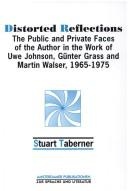
ISBN: 9004654879 9042003537 Year: 1998 Publisher: Leiden : BRILL,
Abstract | Keywords | Export | Availability | Bookmark
 Loading...
Loading...Choose an application
- Reference Manager
- EndNote
- RefWorks (Direct export to RefWorks)
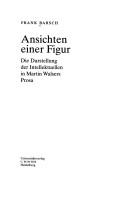
ISBN: 3825310078 9783825310073 Year: 2000 Publisher: Heidelberg: Winter,
Abstract | Keywords | Export | Availability | Bookmark
 Loading...
Loading...Choose an application
- Reference Manager
- EndNote
- RefWorks (Direct export to RefWorks)
Book
Year: 1964 Publisher: Chicago (Ill.) : University of Chicago press,
Abstract | Keywords | Export | Availability | Bookmark
 Loading...
Loading...Choose an application
- Reference Manager
- EndNote
- RefWorks (Direct export to RefWorks)
French literature --- Intellectuals in literature. --- History and criticism.
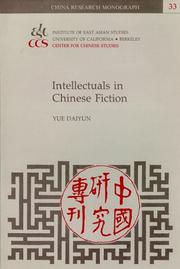
ISBN: 0912966971 Year: 1988 Publisher: Berkeley University of California. Institute of East Asian studies
Abstract | Keywords | Export | Availability | Bookmark
 Loading...
Loading...Choose an application
- Reference Manager
- EndNote
- RefWorks (Direct export to RefWorks)
Chinese fiction --- Intellectuals in literature --- History and criticism
Book
ISBN: 1442695889 9781442695887 1442695897 1442643323 Year: 2019 Publisher: Toronto : University of Toronto Press,
Abstract | Keywords | Export | Availability | Bookmark
 Loading...
Loading...Choose an application
- Reference Manager
- EndNote
- RefWorks (Direct export to RefWorks)
The Intellectual as Hero in 1990s Ukrainian Fiction weaves a fascinating narrative full of colourful characters by examining the prose of today's leading writers.
Ukrainian fiction --- Intellectuals in literature. --- Heroes in literature. --- History and criticism.
Book
ISBN: 8366369323 8389191172 Year: 2012 Publisher: Warszawa : Instytut Slawistyki Polskiej Akademii Nauk,
Abstract | Keywords | Export | Availability | Bookmark
 Loading...
Loading...Choose an application
- Reference Manager
- EndNote
- RefWorks (Direct export to RefWorks)
The monograph aims to reconstruct the Weltanschauung of Bulgarian elites in the second half of the 20th century, as documented in the novels and dramas by Blaga Dimitrova written between the mid-1960s and early 1980s. Being anchored in the everyday reality of Bulgarian communism, Dimitrova's works could be analysed as a specific document of the time, including the dialogue with the national tradition, history, and contemporary events of the social, political and artistic life in Bulgaria. A deconstruction of the ideas contained in the works by Dimitrova allows for their projection onto the background of perennial narratives about the identity of the nation, the attitude towards the Other, the vision of social and cultural modernisation, and the role played in these processes by the national elites.
Bulgarian literature --- Women in literature. --- Women intellectuals in literature. --- History and criticism.
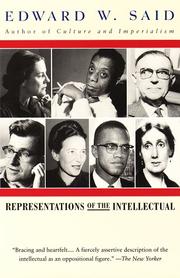
ISBN: 0679761276 9780679761273 Year: 1996 Publisher: New York [N.Y.]: Vintage,
Abstract | Keywords | Export | Availability | Bookmark
 Loading...
Loading...Choose an application
- Reference Manager
- EndNote
- RefWorks (Direct export to RefWorks)
Intellectuels --- Intellectuels dans la litterature --- Pouvoir (Sciences sociales) --- Intellectuals --- Intellectuals in literature --- 811 Filosofie --- Intelligentsia --- Persons --- Social classes --- Specialists
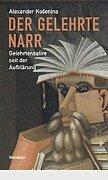
ISBN: 3892445311 Year: 2004 Publisher: Gottingen Wallstein
Abstract | Keywords | Export | Availability | Bookmark
 Loading...
Loading...Choose an application
- Reference Manager
- EndNote
- RefWorks (Direct export to RefWorks)
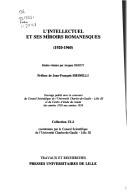
ISBN: 286531054X 9782865310548 Year: 1993 Volume: 3 Publisher: Lille: Presses universitaires de Lille,
Abstract | Keywords | Export | Availability | Bookmark
 Loading...
Loading...Choose an application
- Reference Manager
- EndNote
- RefWorks (Direct export to RefWorks)
Thematology --- French literature --- European fiction --- Intellectuals in literature --- Roman européen --- Intellectuels dans la littérature --- Congresses --- Congrès --- Literature, Modern --- Congresses. --- History and criticism --- -Intellectuals in literature --- -European literature --- -History and criticism --- Roman européen --- Intellectuels dans la littérature --- Congrès --- Modern literature --- Arts, Modern --- European literature --- History and criticism&delete& --- 20th century --- Literature [Modern ] --- Intellectuals in literature - Congresses. --- European fiction - 20th century - History and criticism - Congresses. --- Literature, Modern - 20th century - History and criticism - Congresses. --- Intellectuels
| Listing 1 - 10 of 21 | << page >> |
Sort by
|

 Search
Search Feedback
Feedback About UniCat
About UniCat  Help
Help News
News